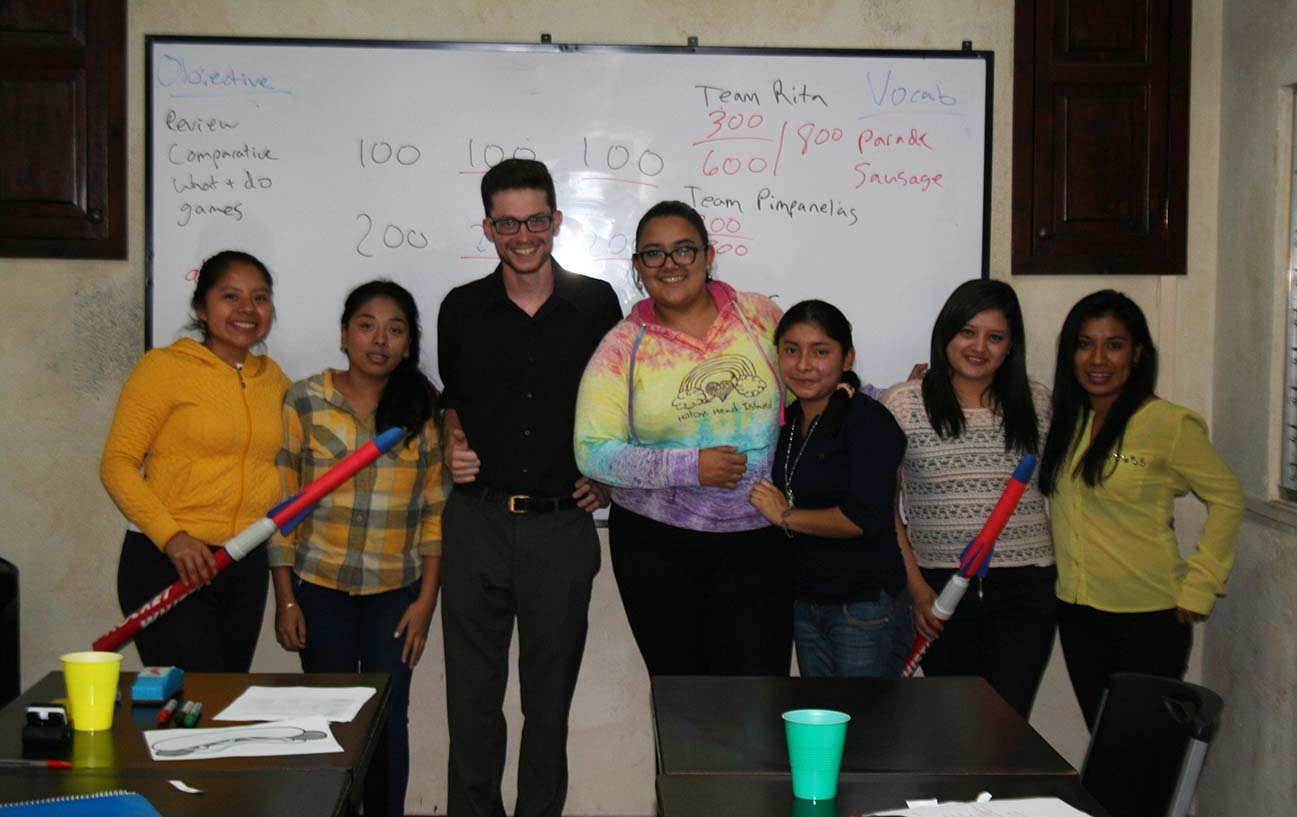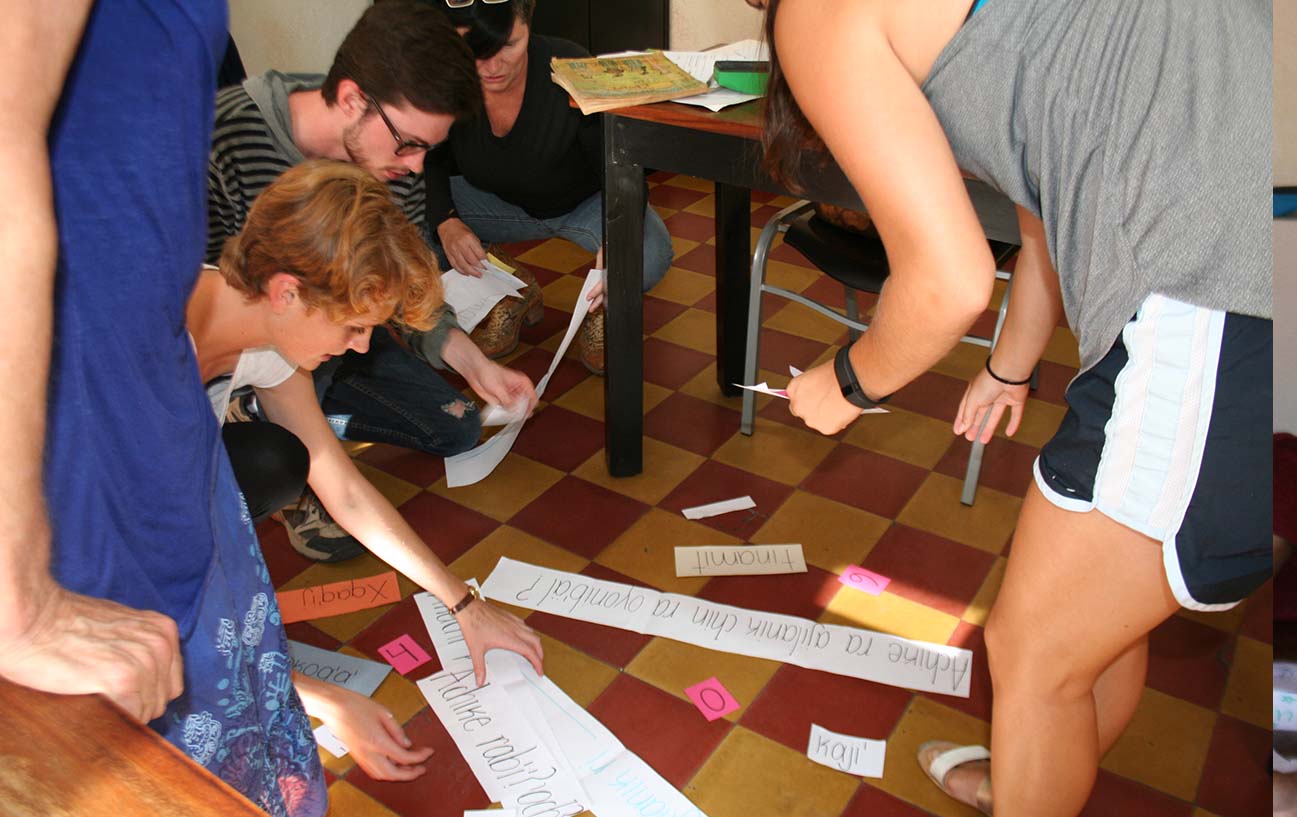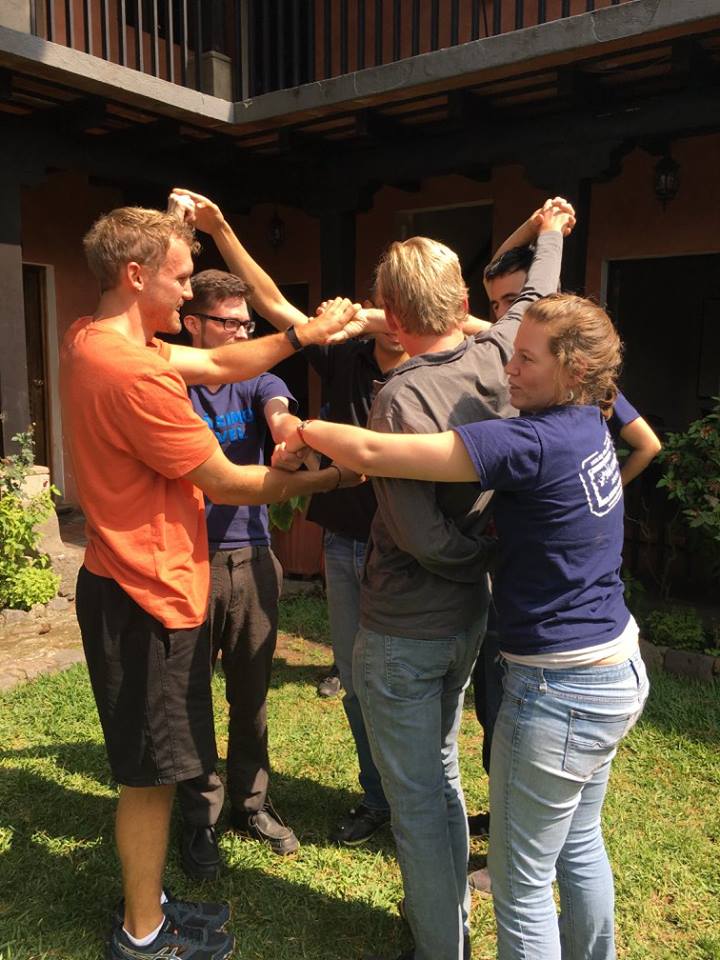It was 2013. I had gotten back from the volunteer experience of a lifetime with Maximo Nivel. After spending more than six weeks living in the jungle and traveling around Peru – I was heading home. Maximo had been my support system the whole time – and they’re the reason I left the States in the first place. But I had one question upon my return. How can I travel longer – and could I do it without a degree?
The combined voices of the internet said no. But I was determined. I didn’t want to go to college yet – having no idea what I’d go for.
Instead, I searched. And then, I ‘discovered’ teaching English. Like a light bulb flashing above my head – I felt electrified. For the first time in my life I had a plan. Yet the excitement and exhilaration soon shriveled into disappointment. All because of one simple thing I read online.
Everyone Said It was Impossible – and I Believed Them
A lot of people in this world are, unfortunately, naysayers. Before I went to Peru, people warned me about everything from the cities, jungles, to the water. How are you going to withdraw money? Do they even have ATM’s? Yes, someone actually asked me this.
And, again unfortunately, a lot of people are naysayers on the topic of ESL (English as a Second Language). Especially when it comes to people teaching without a degree. I scoured forum after forum and travel blog after travel blog. But it was like a secret group had instructed the internet to whisper ‘It’s impossible to teach ESL without a degree’ – in every nook and cranny of the web.
And I believed it, too. For a while. Until, that was, I discovered a YouTube personality who had actually done it. He had done what I wanted to do. He told his fans, all across the world, he had taught ESL without a degree and was successful. He did it… in Cambodia.
That’s all I needed to latch onto. The next decision is what formed my ESL career.
Finding Maximo’s TEFL Course
So, what do you need to become an ESL teacher?
You need a TEFL certification. And you need to be a Native (or advanced) English Speaker. That’s it. No degree required.
Well, now I knew what to look for – but what course should I take?
In the back of my mind – I remembered Maximo having ESL schools in Peru. I had volunteered with them before and the experience was fantastic. So, why not check out their TEFL course?
Well, I’m not one to just throw my money anywhere so I did the research.
I started comparing TEFL courses from across the internet. Some were onsite – meaning they took place in a different country. And some were online – you learned it all from the comfort of your living room.
From this research, I discovered three things.
First, the internet has a lot of scams. There were tons of courses offering different things. Yet all it took was a quick google search to find out whether they were either cons or simply incompetent.
Second, onsite courses are the way to go. If you take a TEFL course in a foreign country – you’d be able to start looking for jobs right away. I mean you’re already there, why not use it to your full advantage.
Third, I found what the employers were actually looking for. They weren’t just looking for the 60-hour online courses you could complete in a day. These schools were looking for legitimate in-depth training.
The Cons of Signing up for an Incompetent Course
So, first – plain old motivation. You know the deal – you finally decide to hit the gym after New Year’s Eve. Maybe you even show up the first couple of weeks… but eventually as work and life take their toll – you go less and less. Why? Well, it’s your motivation.
The same thing can happen with an incompetent course. There isn’t an instructor looking over your shoulder. No one is there to answer your questions.
Now, imagine the TEFL class I took in Guatemala. There I had an instructor with me at all times and every question soon had an answer. I also had encouragement and support at every turn.
So, you may ask, but where’s the motivation? Well, it was in the sip of Guatemala’s revitalizing coffee while I soaked up the sun. It was in the view of Guatemala’s volcanoes – peeking out from the clouds. It was in all the little interactions, sights and sounds I had while strolling to class. That’s motivation you won’t find in your living room.
Where are the REAL students?
There won’t be any. You’re gonna go through lesson after lesson but you won’t teach real students if you take the wrong course.
And this is true even for onsite courses. You need to be picky about the TEFL program you choose. I mean, everyone wants the most for their money, right? Well, here’s the question you need to answer.
Would you rather be in a professional environment using REAL students OR in a rundown building with a TEFL instructor who doesn’t want to be there?
The answer is obvious.
Evaluations/Feedback. Feedback is essential to a competent TEFL course. Without these critiques, how will you test strategies and hone your skills as an ESL teacher? The problem with a lot of TEFL courses is they do not include this simple evaluation process.
After looking at these negatives, you may come to the conclusion that there isn’t a TEFL program out there for you.
That’s the wrong conclusion.
This is where Maximo Nivel comes into play.
Pros of Taking Maximo Nivel’s TEFL Program
Maximo Nivel has certified TEFL instructors. These instructors, whether in the online course or onsite, are invaluable. They’ll provide you with real time feedback and solutions – taking your teaching to the maximum level. The instructors are there with you every step of the way. There is no better way to learn than from those who have done it.
Maximo’s TEFL Course is 150 hours + 6 hours of Observations + 6 hours of Practical Teaching. This course sets you up for success right from the get-go.
With six hours of observations, you’ll get to watch, listen and critique ESL teachers from around the world. The methods these teachers use are as varied as the countries they hail from. These observations come in handy later when you yourself are in the classroom.
The six hours of practical teaching take place at the end of certificate course. For a full week, you’ll become the teacher in a real ESL classroom. You’ll take over another teacher’s class and have to lesson plan accordingly. The TEFL instructor will show up every day and observe your class.
ESL schools expect you to have at least 120 hours of training on a TEFL certificate. Maximo meets and exceeds these requirements. Schools will take special notice of the practical teaching and observations as well. It’s already one foot in the door before you’ve even interviewed.
This TEFL course has lifetime job finding assistance. It’s for life and you’ll be using it. No matter where you go – whether the Savannahs of South Africa or the lush landscapes of Galicia – finding a job is an email away. This is something quite rare in the TEFL course world. TEFL instructors know the ins and outs of ESL – including job finding. They can give your name to ESL head hunters, recommend online opportunities, or offer a good word to local institutes. This an invaluable part of the entire program.
The possibility of getting a job with Maximo
After taking an ESL course with Maximo you may be wanting to jump right in. And if you did well in class – the TEFL instructors and directors will notice. Usually at the end of every Maximo course the director gives an introduction. Depending on availability – it’s possible to get a job directly with them.
Find out more about Maximo Nivel’s TEFL program here.
What to Expect During Your TEFL Course
So, what’s the entire TEFL course about anyway?
Each week has different lessons. One week you may be giving a mini lesson and studying grammar – the next your observing a classroom. It’s all designed to start you on your best foot forward. When it comes to looking for ESL jobs – all the training, studying, and practical teaching will be scrutinized. This course helps you succeed on all fronts.
Expect the following in your TEFL course:
• Preparing observation reports on real teachers.
• Teaching 20-minute mini-lessons to volunteer students.
• Testing fellow TEFL’ers with new strategies/methods.
• Writing a fully researched grammar essay – TEFL instructor graded/reviewed.
• Learning from daily worksheets, homework, and lesson planning exercises.
• Honing your skills with one week of practical teaching – including lesson planning and evaluations.
It all revolves around one thing – the creation of a competent teacher.
I remember thinking – I speak English – surely I can teach it?
Wrong.
Before the course, I hadn’t the slightest idea what any tense was – let alone something like present perfect progressive. Now… I have been working with tenses for a while – but back then? I didn’t know the difference. These are things – simple and natural to native speakers – but necessary knowledge for your students.
What is the interview process like?
An ESL teacher interview can be as simple as a sit-down or as lengthy as a full demonstration. It depends on the school.
One school had me prepare a demo lesson, take an English proficiency test and have a sit-down interview.
But not all schools are like that – so don’t get nervous. Most schools only have one question.
How long are you going to stay?
If the answer is longer rather than shorter – chances are you’ll get the job. (Usually, these schools track your progress. So, you’re still going to have to put in the work.)
What to Expect on the First day of Class
The first day of class is stressful for any teacher but it does not have to be. One of the things you’ll want to do from the beginning is come prepared. This involves creating a lesson plan for the allotted time you’ll teach. By the end of Maximo’s TEFL course you will have a good grasp on how to plan and manage your classroom.
Many students in foreign countries have had some experience with English. Whether from advertisements, internet forums/websites, or other varieties of contact. However, don’t take this as a given – some students haven’t had any experience with English. In this way you need to have strategies at the ready. Talk with your TEFL instructor and run your lesson plan by them for your first class.
After a month or so of teaching you’ll be ready for anything. Teaching with confidence grows with time. Eventually, you’ll be able to walk into any classroom assured of your abilities.
Dealing with Feedback from Your Students/Instructors
Everyone’s a critic. And it’s true – you’ll be critiqued from the time you begin teaching to the time you leave. It’s all part of the job. There are two types of critiques you may receive:
The first – feedback from students.
This is arguably the most important evaluation. It allows you to hone your class and temper your lesson plan to individual students. Sometimes your students will want more games. Or maybe they’ll prefer a more structured style. This feedback is super important to keeping your students happy and learning in a way that suits them.
Example: I taught one class for six months. Eventually after three or four months in – my students thought the lessons were getting stale.
Perhaps I had become too routine. One student suggested we do more activities.
Instead of becoming jaded or taking it personally – I implemented more things into my lesson plan.
Every Tuesday, I started the class off with a listening activity.
At the end of the week on Friday – we played review games.
After receiving that evaluation and implementing new ideas – my students gave me much better reviews. It translated into real life – the students were happier and guess what? It made my life as an instructor easier as well.
The second – receiving feedback from an instructor or director.
This feedback, for me, is easier to digest. The evaluation is coming straight from the horse’s mouth.
Sometimes someone will just pop in to observe. It’s not always bad – maybe someone has recommended that they see your specific style. It can be distracting but just teach as you normally would. It’s far better for an observer to see your usual style than a manufactured one.
However, this evaluation can be serious. If an instructor or director is suggesting, you change something – take it to heart. After all, it’s what they do.
I had one evaluation recommending that I increase student talk time. After adjusting to their critique – I saw my students performance increase.
Personal Experience Teaching with Maximo Nivel
I started teaching at Maximo in February of 2016. I remember starting with Basic classes and a couple of Fluency classes, too.
The awesome thing about teaching with Maximo is the full range of freedom you receive with your class.
When I wanted to take my Fluency class to the park? No problem.
How about watching a movie with my Intermediates? Sure thing.
These freedoms allowed me to explore many options with my students. Working on not only their listening but real-life interactions as well. Life skills such as asking strangers for directions are so important to students. Maximo Nivel allows for a variety of experiences to aid their student’s education.
Building a rapport with students is one of the best parts about teaching. I, personally, am still friends with a lot of my students – even from two or three years ago. Those friendships are just one of many reasons I consider Maximo’s TEFL course and school such a personal success. Without them, none of this would be possible.
If you’re still on the fence about whether teaching ESL overseas without a degree is possible – take a second look. I’m proof that, no matter your background, you can and SHOULD give yourself this opportunity. There’s nothing better than waking up, grabbing a coffee, heading to work – strolling down cobblestone streets and seeing new cultures around every corner. If I did it – anyone can, and it’s only a plane ticket away.
If you liked this article and want to read more about Thomas’ experiences visit his travel blog and check out his Facebook page.







